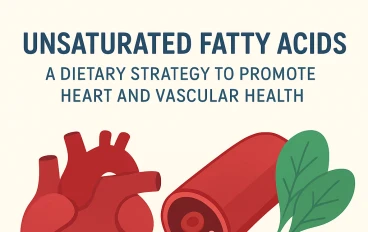
Nourish your body for better health 2024
Nourish your body for better health
In today's fast-paced world, it can be easy to fall into the trap of unhealthy eating habits. Processed foods, sugary drinks, and excessive portion sizes are readily available and often marketed as convenient and satisfying. However, these choices can have detrimental effects on our physical and mental well-being. Conversely, prioritizing healthy food choices can lead to a multitude of benefits, ranging from increased energy levels and improved mood to reduced risk of chronic diseases and a longer lifespan
This article serves as your comprehensive guide to healthy eating, providing essential knowledge and practical tips to nourish your body and optimize your overall health
What is Healthy Eating
Healthy eating is not about fad diets or restrictive food rules. It's about adopting a balanced and sustainable approach to food that provides your body with the nutrients it needs to function optimally. This involves incorporating a variety of nutrient-rich foods from all food groups, including
- Fruits and vegetables: Aim for at least five servings per day, opting for a diverse range of colors and types. Fruits and vegetables are packed with vitamins, minerals, fiber, and antioxidants, all crucial for promoting health and preventing disease
- Whole grains: Choose whole grains like brown rice, quinoa, oats, and whole-wheat bread over their refined counterparts. Whole grains provide sustained energy, fiber, and essential nutrients
- Lean protein: Include lean protein sources such as fish, poultry, legumes, and beans in your meals. Protein is essential for building and repairing tissues, maintaining muscle mass, and supporting immune function
- Healthy fats: Don't shy away from healthy fats! Choose sources like avocados, nuts, seeds, olive oil, and fatty fish. Healthy fats play important roles in hormone regulation, brain health, and cell function
- Dairy products: Low-fat or fat-free milk, yogurt, and cheese are good sources of calcium, vitamin D, and protein, which are essential for bone health and overall well-being
Key Principles for Healthy Eating
- Balance and variety: Ensure your diet incorporates foods from all food groups in appropriate proportions. This helps ensure you're getting the diverse range of nutrients your body needs
- Moderation: Enjoy all foods in moderation, even the less healthy ones. Deprivation can lead to cravings and binge eating
- Portion control: Be mindful of portion sizes and avoid overeating. Pay attention to your body's hunger and fullness cues
- Limit processed foods: Opt for whole, unprocessed foods as much as possible. Processed foods are often high in unhealthy fats, added sugars, and sodium, which can contribute to various health problems
- Stay hydrated: Drink plenty of water throughout the day to stay hydrated and support optimal body function
- Plan and prepare meals: Planning and preparing meals ahead of time can help you make healthier choices and avoid unhealthy temptations when you're pressed for time
- Mindful eating: Pay attention to your thoughts and feelings while eating. Avoid distractions like TV or your phone, and savor the taste and texture of your food. This can help you feel more satisfied and prevent overeating
- Read food labels: Pay attention to serving sizes and nutrient information on food labels to make informed decisions about the foods you choose
Additional Tips for Healthy Eating
In addition to the principles mentioned above, here are some additional tips to further enhance your healthy eating journey
- Cook at home more often: Cooking at home allows you to control the ingredients and portion sizes of your meals
- Pack healthy snacks: Having healthy snacks readily available can help you avoid unhealthy temptations when you're on the go
- Eat slowly and chew your food thoroughly: This aids in digestion and helps you feel full more quickly
- Get enough sleep: Sleep deprivation can disrupt your hormones and lead to unhealthy food cravings
- Manage stress: Stress can trigger unhealthy eating habits. Practice relaxation techniques like yoga or meditation to manage stress levels
- Seek support: Surround yourself with people who support your healthy eating goals
- Consult a registered dietitian: For personalized guidance and tailored advice, consider consulting a registered dietitian who can create a healthy eating plan for your specific needs and preferences
Conclusion
Eating healthy is a journey, not a destination. By incorporating the principles and tips outlined in this article, you can make informed food choices and nourish your body with the fuel it needs to thrive. Remember, small changes over time can lead to significant and lasting improvements in your health and well-being. So, embark on your healthy eating journey today and experience the vibrant energy and vitality that comes from fueling your body with the right foods
































